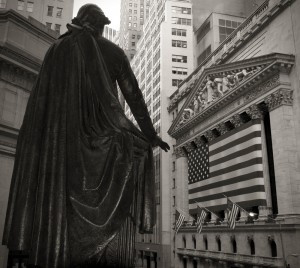 Advisor Mark Robare (Robare), currently employed by Triad Advisors LLC (Triad Advisors) has been subject to at least one customer complaint and one regulatory matter during the course of his career. According to a BrokerCheck report one customer complaint concerns alternative investments such as direct participation products (DPPs) like business development companies (BDCs), non-traded real estate investment trusts (REITs), oil & gas programs, annuities, and private placements. The attorneys at Gana Weinstein LLP have represented hundreds of investors who suffered losses caused by these types of high risk, low reward products.
Advisor Mark Robare (Robare), currently employed by Triad Advisors LLC (Triad Advisors) has been subject to at least one customer complaint and one regulatory matter during the course of his career. According to a BrokerCheck report one customer complaint concerns alternative investments such as direct participation products (DPPs) like business development companies (BDCs), non-traded real estate investment trusts (REITs), oil & gas programs, annuities, and private placements. The attorneys at Gana Weinstein LLP have represented hundreds of investors who suffered losses caused by these types of high risk, low reward products.
In March 2020 a customer complained that Robare violated the securities laws by alleging that Robare engaged in sales practice violations related to an unsuitable investment strategy beginning in 2014. The claim alleges $500,000 and is currently pending.
In September 2014 the SEC alleged that Robare used Fidelity Investments for clearing services for its advisory clients whereby Robare entered into a revenue sharing arrangement with Fidelity Investments in 2004. In this arrangement, Fidelity paid Robare to invest in certain mutual funds offered on Fidelity’s platform and Robare received nearly $400,000 from Fidelity from 2005 to 2013 as a result of the arrangement. The SEC claimed that Robare modified its Form ADV disclosures in December 2011 after Fidelity advised Robare that it would cease making payments if the arrangements were not disclosed. The SEC fined Robare $50,000.
DDPs include products such as non-traded REITs, oil and gas offerings, equipment leasing products, and other alternative investments. These alternative investments virtually never profit investors and are almost always unsuitable for investors because of their high fee and cost structure. Brokers selling these products are paid additional commission in order to hype these inferior quality investments providing a perverse incentives to create an artificial market for the investments.
Several studies have confirmed that Non-traded REITs underperform publicly traded REITs with some showing that Non-Traded REITs cannot even beat safe benchmarks, like U.S. treasury bonds. Brokers selling these products must disclose to the investor that non-traded REITs provide lower investment returns than treasuries while being high risk and illiquid – but almost never do. Because investors are not compensated with additional return in exchange for higher risk and illiquidity, these kinds of alternative investment products are rarely, if ever, appropriate for investors.
Brokers have a responsibility treat investors fairly which includes obligations such as making only suitable investments for the client after conducting due diligence. Due diligence includes an investigation into the investment’s properties including its benefits, risks, tax consequences, issuer, history, and other relevant factors. Appropriate due diligence would identify that an alternative investment’s high costs, illiquidity, and conflicts of interests that would make the investment not suitable for investors. Investors often fail to understand that they have lost money until many years after agreeing to the investment. In sum, for all of their costs and risks, investors in these programs are in no way additionally compensated for the loss of liquidity, risks, or cost.
Unfortunately, these types of alternative investment products continue to popular among brokers due to their high commissions. In order to counter the perverse incentives to sell these flawed product many states now limit investors from investing more than 10% of their liquid assets in Non-Traded REITs and BDCs. Many states impose these limitations because these investments do not benefit investors.
Robare entered the securities industry in 1987. Since February 2003 Robare has been registered with Triad Advisors out of the firm’s Houston, Texas office location.
Investors who have suffered losses are encouraged to contact us at (800) 810-4262 for consultation. At Gana Weinstein LLP, our attorneys are experienced representing investors who have suffered securities losses due to the mishandling of their accounts. Claims may be brought in securities arbitration before FINRA. Our consultations are free of charge and the firm is only compensated if you recover.
 Securities Lawyers Blog
Securities Lawyers Blog


